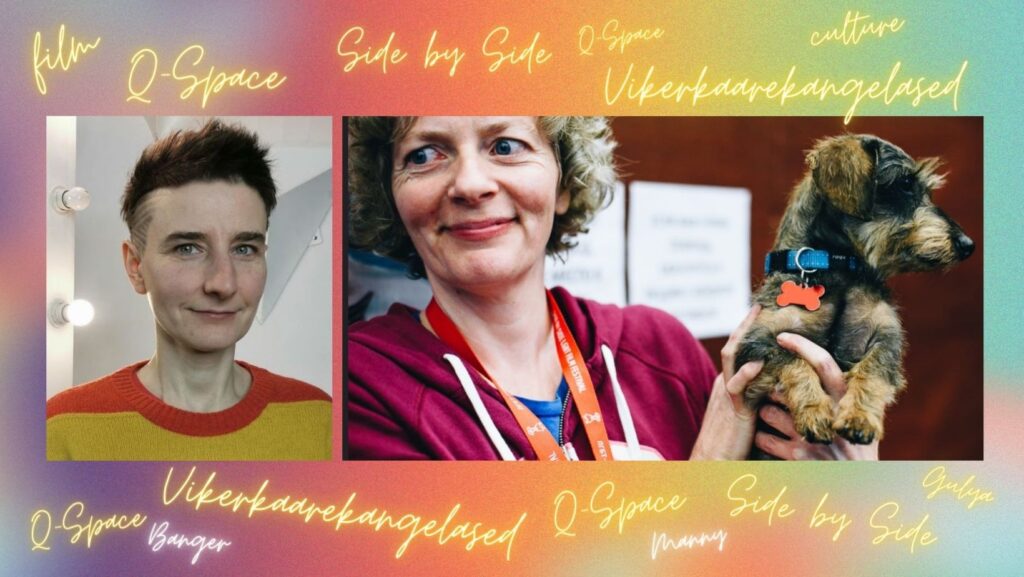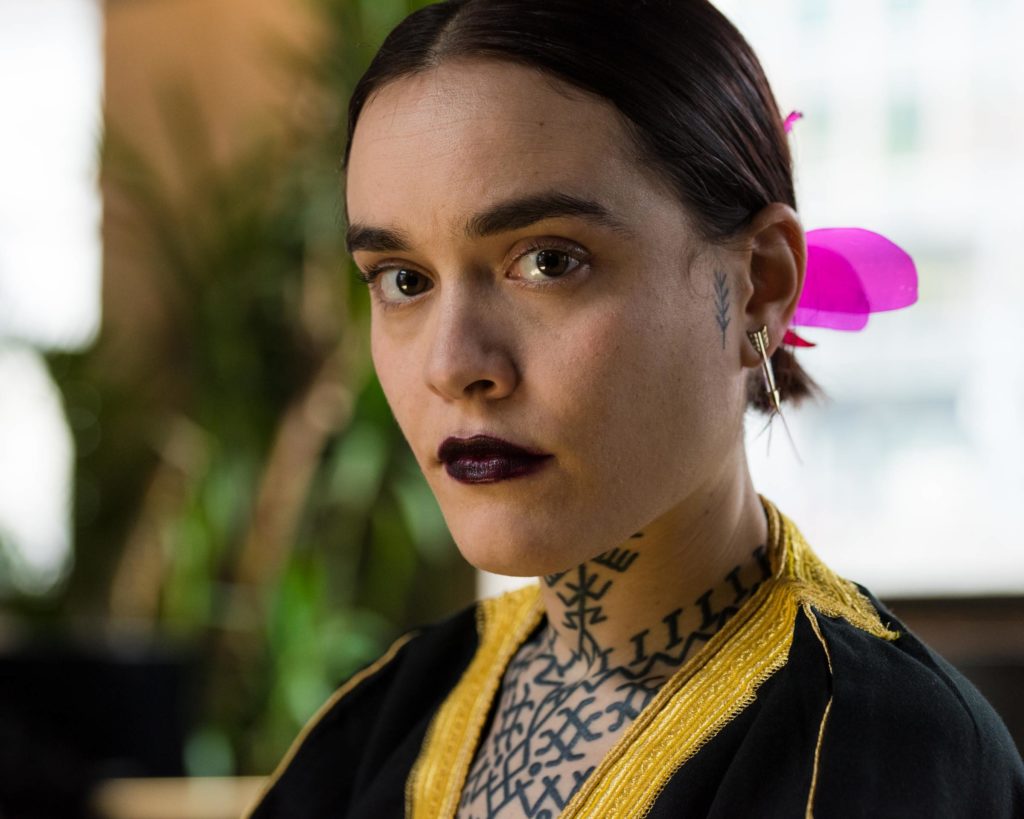Kristel Kruustük: “You can never please everyone”
Kristel Kruustük, 29, is the co-founder of Testlio, a startup that tests software. Nominated ‘Entrepreneur of the Year’ in 2017 in Estonia, she’s the youngest female millionaire in the country and a prominent figure in the European tech industry.
How did you end up working in the tech industry?
When I graduated from high school, I didn’t really know what I wanted to do with my life. My older sister who had already been living abroad for six years worked in London. She invited me over to expand my horizons and figure out my next steps. That was in 2008. So after graduating, I flew over and found work as a waitress. My sister’s friends who I would hang out with were mostly working in tech. They all said that if I didn’t know what I really wanted to do, I should just study programming.
So how did you kickstart your career?
I started with software testing. It’s quite an easy entry-level job for a programming beginner. Eventually I took a liking to testing and realised it was the right career path for me. Instead of focusing on becoming a developer, I strived to become a better tester. I really liked the idea of crowdsourced testing where testers meet online and take part in specific projects, testing applications for bugs and other issues. For every bug I found and reported, I got money. Then, I started testing for different platforms and after a few months I was already among the top testers. But at the same time, I became more and more frustrated. In my eyes, the way in which the platforms were built didn’t value testers enough.
It sounds like the perfect success story. You found your passion, chased your dream, got the funding and acknowledgment. Were there any obstacles or challenges you faced along the way?
Oh yes! While I was looking for a job in London, I lived in a hostel with 12 people in one room. Rats were scuttering over our suitcases at night and I slept with my bags under the blanket. When I finally got a job, I still didn’t have an apartment and had to stay there. One night I even stayed in the office [where I worked] because I didn’t want to go back to the hostel.
When my husband and I launched Testlio, we had to live month by month because we had no resources or savings to fall back on. When we went to Austin for the Techstars programme in 2013, a three month accelerator programme, we also had a tough time. We got so much mixed feedback. Some people told us Testilo was the next big thing while others said our business model wasn’t sustainable. It was hard for me, I kept thinking: “Oh god, maybe we’re doing the wrong thing here and wasting our time and no one believes in us.” There were a lot of tears in the beginning.
How did you set that stress aside and come out the other end?
After having been through a lot, you just realise that no matter what comes your way, you will find a solution. Entrepreneurship taught me how to be even more optimistic. Building up a company isn’t easy, especially when you’re doing something completely different. You can never please everyone. The most important thing is doing what you’re passionate about and believing that you’re on the right path.
You’ve been named ‘Youngest Female Millionaire in Estonia’, ‘Woman of the Year’ and ‘Young Entrepreneur of the Year’. How do you feel about those accolades?
For me, although it’s a huge recognition, there are so many other people who deserve these acknowledgements. But above everything else, I’ve realised that what I do seems to matter to people. I’m really honoured to be able to inspire young people, girls in particular, to pursue a career in technology or carry out their entrepreneurial dreams. In the future I hope to see a lot more girls and women in the tech industry. That’s our future, and there’s no doubt that we need more diversity in the field.
Why is it important for you to see women working in male-dominated industries like technology?
We all use apps. If they’re created from a single viewpoint, then that’s not building towards a future I would like to see. It’s crucial to take other perspectives into account. Even though women’s role in society is changing, it’s important to talk about [representation] because I still see women being discriminated against. So it’s a vital topic that we as women, and men especially, have to talk about. Last year when I was pregnant, I felt so much internal pressure.

Image: Birgit Püve
How do you see gender discrimination in Estonia in general?
I think that a woman’s role is still primarily seen as being a mother and a wife. Last year when I was pregnant, I felt so much internal pressure. I thought that in becoming a mother, everyone would expect me to stay at home and forget about the company. There are such strong gender stereotypes across the world that I felt like I had to get back to work immediately after giving birth. Otherwise I would have [felt like a] failed leader and entrepreneur. I think that’s why there are so few women in top executive positions. They’re convinced that, if you’re a mother, you can’t commit to working 100%.
Could you explain that social pressure?
In the tech world, where Silicon Valley companies raise hundreds of millions and billions of dollars, there’s a work culture where you wake up at 4am and work until 10pm. How is that even possible? Especially when you’re a mother breastfeeding your child, you physically can’t be working from 4 to 10 o’clock at night and consider it normal.
Now you’re staying home with your baby boy Aaron…
When I saw Aaron I was like, “Nope, I’m going to take my time and that’s OK.” I wish that women would understand that it’s OK to take time for your child; your professional life doesn’t have to be over. It’s terrible that being a mother is seen as something negative with regards to their career, whereas for men becoming fathers it’s like a huge bonus.
Do you feel you are treated differently being a female company leader and entrepreneur?
That’s a hard question to answer because I’ve never been a man, right? So I don’t know how men are treated. But sure, I thought it might have been slightly different. I’ve experienced more arrogance from male colleagues when I’ve been alone compared to being with Marko [her husband and co-founder of Testlio] during meetings. Once we were in Moldova for a start-up conference talking about how Testlio raised seed money, and one entrepreneur said that the only reason I managed to raise money was because I was a pretty, blonde woman.
Is that a common belief in the start-up world? That you can raise more money as a woman?
We’ve managed to secure funding very smoothly. But I’ve heard stories, even here in Estonia, where venture capitalists and investors asked women entrepreneurs lewd things like: “So, are we going out or what?” Like going out on a date… The fact that they expect something in return for giving money is just crazy to me. Luckily I haven’t experienced that. But that’s also why we need to talk about gender inequality more and include men in the conversation. They don’t understand the problem because they don’t experience it.
Did you feel the impact of the #MeToo movement?
I think the #MeToo movement is a conversation that needed to happen. The scope of the problem is so vast and pervasive on all levels that it’s really everyone’s duty to stay vigilant, vocal and proactive about these issues. Sexual harassment and assault are not acceptable. We need to condemn that and prevent it from happening [in the first place]. What’s more, I think that a big takeaway from #MeToo is that it doesn’t only affect women – men are also victims of sexual violence.
Do you consider yourself a feminist?
The term ‘feminist’ is so stereotyped and misrepresented that I prefer not to label myself as anything other than human. And as a human being, I strongly believe in harmony and equal treatment for both men and women. Still, the reality today is that more women and girls around the world are denied fundamental rights than men. It’s my duty to address these issues in any way I can.

Image: Birgit Püve
Do you feel European?
Of course I feel like a European citizen. Actually, I feel like a citizen of the world. In Estonia, if we think about where we came from and how other countries helped us during the war times, it makes me sad to think about the conflicts that are taking place [heated discussions on refugee topics, attacks against foreigners and liberal politicians from the conservative party]. It’s just sad how people are think in stereotypes and are narrow-minded. People are narrow-minded and tend to stereotype. I wish that people would get along and that there would be more tolerance and acceptance.
Do you feel concerned by the rise of populism across Europe?
Yes. Radicalisation is always worrying. It means that somewhere, something in our society is failing. When people are so angry that they start shifting to the far-right, the chances of having an authentic, open conversation with them are slim. History shows us what happens when extremist ideologies rise to power and creep into the fabric of our societies.
Are you referring to the Soviet era? Did women have more rights during the communist regime?
I was way too young then and I don’t really have first-hand knowledge, so I can’t really comment on that from a personal point of view. But my grandmother, who is my inspiration, worked her whole life during the Soviet Union and beyond. I get the sense from her that the position of women in the workforce and politics, to a certain extent, was more similar to that of men.
In your eyes, what would be the most important law concerning women that should be changed in the EU?
One thing for sure is the gender pay gap. We should work towards bridging it. In many organisations, women ask for much lower pay than men when they start a job and companies won’t raise it to the level it should be. They tell themselves: “Oh she asked for less so let’s leave it at that, we could save some money.” It’s so wrong. I don’t know how they could even think that. At Testilo, we have specific roles with specific salaries, and we don’t discriminate based on gender.

The interview was published in the framework of Sisters of Europe. Sisters of Europe is an empowerment project to inspire and better connect women across Europe, through 17 inspiring stories, a series of events and a list of concrete proposals. Read the other interviews here.











